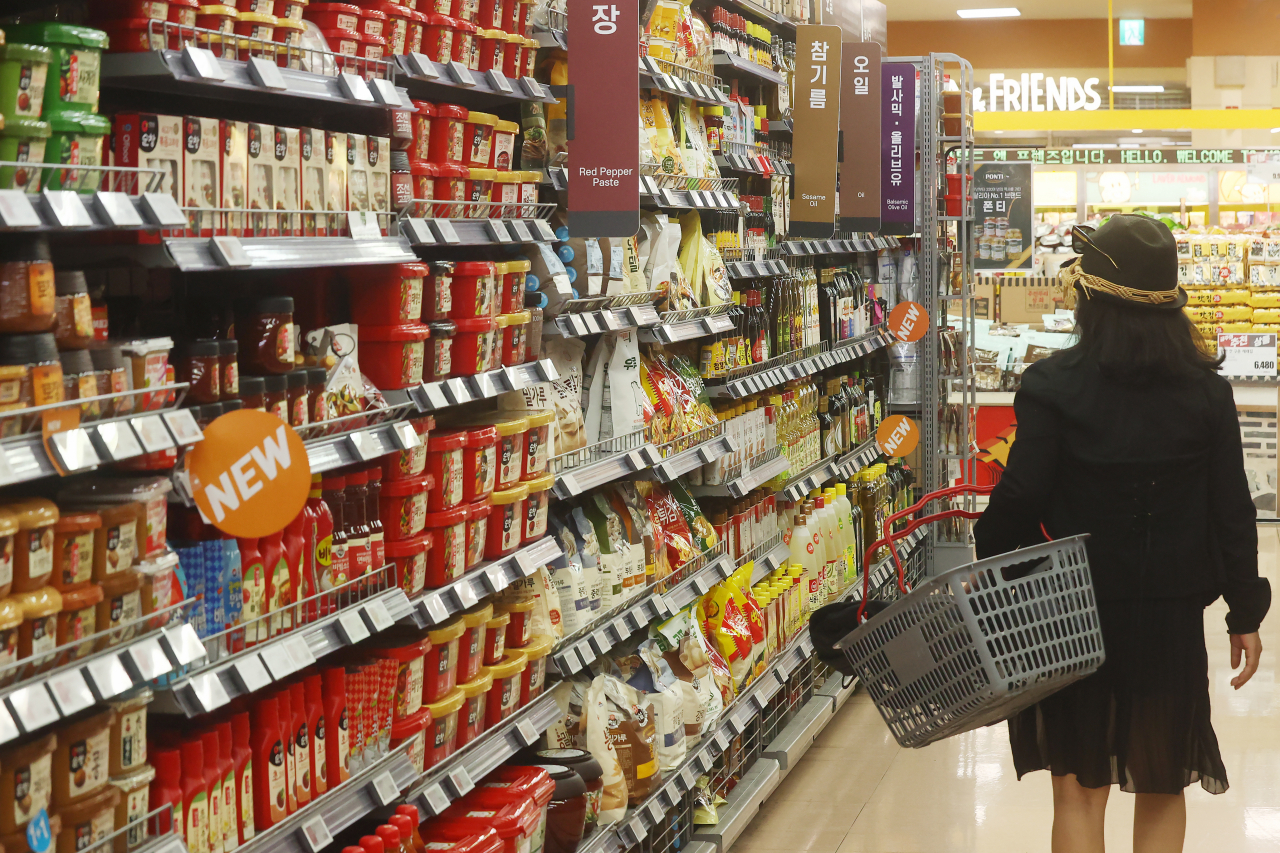Inflation growth hits nearly 14-year high in May on high energy prices
By YonhapPublished : June 3, 2022 - 09:33

South Korea's consumer prices rose at the fastest clip in almost 14 years in May due to high energy and food costs over the protracted war between Russia and Ukraine and the economic recovery, data showed Friday.
Consumer prices jumped 5.4 percent last month from a year earlier, accelerating from a 4.8 percent on-year spike in April, according to the data from Statistics Korea.
It marked the steepest on-year increase since August 2008, when consumer prices soared 5.6 percent. Inflation growth also exceeded 5 percent for the first time since a 5.1 percent rise in September 2008.
Consumer prices rose above 2 percent -- the central bank's inflation target over the medium term -- for the 14th straight month in May.
South Korea faces growing inflationary pressure as crude oil and other commodity prices have risen due to Russia's war with Ukraine and global supply disruptions. Demand-pull inflation has also increased amid the economic recovery.
"In May, prices of petroleum products and processed foods, and personal service prices extended their high growth. The price growth of farm products also picked up," Eo Woon-sun, a senior Statistics Korea official, told reporters.
Finance Minister Choo Kyung-ho earlier said inflation growth is expected to top 5 percent for the time being.
Eo said prices of industrial goods will likely extend their growth due to rising oil and grain prices, and those of personal services are expected to rise significantly in June.
Mounting inflationary pressure lent support to the prospect that the central bank will likely further hike the policy rate in the coming months.
Last month, the Bank of Korea (BOK) raised the key interest rate by a quarter percentage point to 1.75 percent, the fifth rate hike since August last year, to put a lid on inflation and curb household debt.
BOK Gov. Rhee Chang-yong hinted at further rate increases, saying the central bank is now more concerned about inflation than economic growth.
Prices of petroleum products jumped 34.8 percent on-year in May, an acceleration from a 34.4 percent gain in April due to high energy costs.
Dubai crude, South Korea's benchmark, averaged $108.16 per barrel in May, up 63 percent from a year earlier. It hit a yearly high of $127.86 per barrel on March 9. South Korea depends mainly on imports for its energy needs.
The economic recovery and the lifting of major COVID-19 restrictions pushed up personal service prices and the price of dining out.
Personal service prices rose 5.1 percent on-year, the fastest gain in December 2008. The costs of dining out jumped 7.4 percent.
Prices of agricultural, livestock and fisheries products increased 4.2 percent on-year, accelerating from a 1.9 percent rise in April.
Core inflation, which excludes volatile food and oil prices, advanced 3.4 percent on-year last month, the highest since February 2009.
Another gauge of core inflation, which excludes prices of agricultural and petroleum products, jumped 4.1 percent on-year, the fastest climb since April 2009.
In May, prices of daily necessities -- 141 items closely related to people's daily lives, such as food, clothing and housing -- spiked 6.7 percent on-year, the highest growth since July 2008.
In an anti-inflation meeting held earlier in the day, BOK Vice Gov. Lee Seung-heon said that inflation growth will likely stay in the 5 percent range in June and July due to high oil and commodity prices.
Lee also vowed to make efforts to "stably" manage prices and preemptively prevent inflation expectation from growing further.
Earlier this week, the government rolled out a set of measures to curb inflation and stabilize people's living conditions, including the temporary removal of import tariffs on key food ingredients.
Under the 3.1 trillion-won ($2.5 billion) measures, South Korea will not impose import duties under the tariff-rate quota system on seven key food ingredients, such as cooking oil, pork and flour, until the end of this year.
It will also cut value-added taxes on imports of coffee and cocoa beans until 2023. The country will not impose value-added taxes on packaged processed food, including kimchi and soybean paste, until next year.
The finance ministry estimated the measures, if fully implemented, could lower consumer prices by 0.1 percentage point.
The BOK sharply raised its 2022 inflation outlook to a 14-year high of 4.5 percent from its previous 3.1 percent estimate. The central bank lowered its growth forecast for the South Korean economy to 2.7 percent from 3 percent. (Yonhap)




















![[Today’s K-pop] BTS pop-up event to come to Seoul](http://res.heraldm.com/phpwas/restmb_idxmake.php?idx=642&simg=/content/image/2024/04/17/20240417050734_0.jpg&u=)